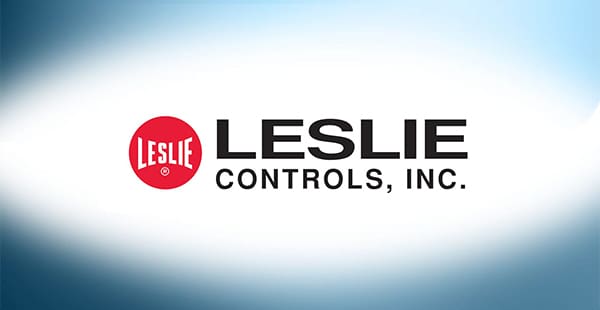01. History of Asbestos Use
Leslie Controls Inc. History of Asbestos Use
From the early 1900s to the 1980s, Leslie Controls Inc. made valves with asbestos components. The company added asbestos-containing gaskets, packing and whistles to its products. It then sold the valves to commercial and military customers, including the U.S. Navy. The company filed for bankruptcy in 2010 and created a trust fund to handle asbestos claims.
John Leslie founded the company in 1900. It was initially named the Leslie Company, and its first manufacturing plant was in Lyndhurst, New Jersey. The company produced pressure-reducing valves with asbestos components purchased from other asbestos companies. It also sold asbestos gaskets and packing as replacement parts.
Industries used Leslie Controls valves to regulate steam, air and gas pressure in fluid systems. For most of the 20th century, companies used asbestos because of its heat resistance. Asbestos helped insulate products exposed to high temperatures, like valves. Leslie Controls is just one of many manufacturers that used asbestos materials in their products.
During World Wars I and II, Leslie Controls was a major asbestos valve supplier to the U.S. Navy. The company continued to supply equipment to the military past the 1940s.
Leslie Controls continues to operate as a subsidiary of CIRCOR International Inc., an aerospace and defense supplier. It is currently headquartered in Tampa, Florida.
Resources for Mesothelioma Patients
02. Asbestos Products
Leslie Controls Inc. Asbestos Products
Leslie Controls made valves that contained asbestos components purchased from other companies. These parts included gaskets, packing and whistles. The company knew the dangers of asbestos exposure but did not place any warnings on its products.
Leslie Controls produced many different types of valves to regulate fluid systems (air, gas or liquid). Customers purchased valves made to handle specific flow capacities, fluid types and pressures.
Companies bought Leslie Controls valves and used them in fluid systems, which also contained:
- Air ejectors
- Boilers
- Heaters
- Laundry steam presses
- Pipes
- Pumps
- Turbines
Asbestos from valve components can enter fluid systems through maintenance or wear and tear. Other parts of these systems, like boilers and pipes, may also contain asbestos components. Asbestos in these systems can become airborne in workspaces, putting people at risk of exposure.
03. Occupational Exposure
Leslie Controls Inc. and Occupational Exposure
Workers at jobsites with Leslie Controls valves may have faced asbestos exposure. Asbestos in products like valves can become airborne if disturbed. This can occur during general use, maintenance, repair and regular wear and tear. If inhaled, asbestos fibers can lodge in the body and lead to asbestos diseases like mesothelioma.
Workers may have experienced occupational asbestos exposure at several commercial jobsites. Many people bringing legal action against Leslie Controls allege exposure at powerhouse facilities. But the company sold its products to many industrial and utility customers.
Leslie Controls also sold valves to the U.S. military. The company made its valves according to military specifications, which at that time required asbestos. The Navy and Coast Guard used Leslie Controls asbestos products on their ships. Veterans who worked around these products may have been exposed to asbestos.
Workers who were previously exposed may still be at risk of developing asbestos diseases like mesothelioma. People who believe they may have been exposed to asbestos can seek medical help. A doctor can watch for mesothelioma signs and symptoms.
04. Asbestos Litigation
Asbestos Litigation Against Leslie Controls Inc.
When Leslie Controls filed for bankruptcy, the company faced approximately 1,340 active, unresolved asbestos disease lawsuits. More than half of these lawsuits involved mesothelioma patients and their family members.
Before the company filed for bankruptcy, its asbestos liability expenses steadily increased. In 2004, it spent almost $800,000 to cover asbestos settlements and other litigation costs. By 2008, the annual cost had crept up to more than $8 million.
Right before Leslie Controls filed for bankruptcy, a California court of appeals reviewed a verdict against it and six other companies. A jury had found the companies responsible for the asbestos exposure that led to a man’s pleural mesothelioma diagnosis. The court of appeals reduced the jury award to $5.1 million, subject to a potential partial retrial. The court did not reverse the jury’s decision that Leslie Controls was responsible.
In 2010, Leslie Controls’ bankruptcy proceedings halted asbestos litigation against the company. This process resulted in the creation of an asbestos trust fund.
05. Asbestos Trust Fund
Leslie Controls Asbestos Trust Fund
In 2010, Leslie Controls filed for bankruptcy. In its filing, the company valued its assets at around $50 million and its debts at around $100 million. In 2011, a court approved the company’s bankruptcy plan. The plan involved placing $76.6 million in a trust fund to handle all current and future asbestos claims against the company.
The trust allows all the company’s asbestos victims to get at least some compensation. In theory, if the company had continued to operate without the trust, lawsuits may have caused the company to go under. This might have left people who later developed mesothelioma without a way to receive money from the company.
The current payment percentage for successful claims is 5%.
The Leslie Controls Asbestos Personal Injury Trust has a current payment percentage of 5%. But various factors can impact the actual payout amount to victims, like occupation, age, disease severity, exposure history and their firm’s settlement history.
In 2022 alone, Leslie Controls’ asbestos trust paid out more than 1,300 claims. This totaled above $1.8 million in compensation. Asbestos lawyers are available to help file claims and explore additional compensation options, like lawsuits and veterans benefits.




